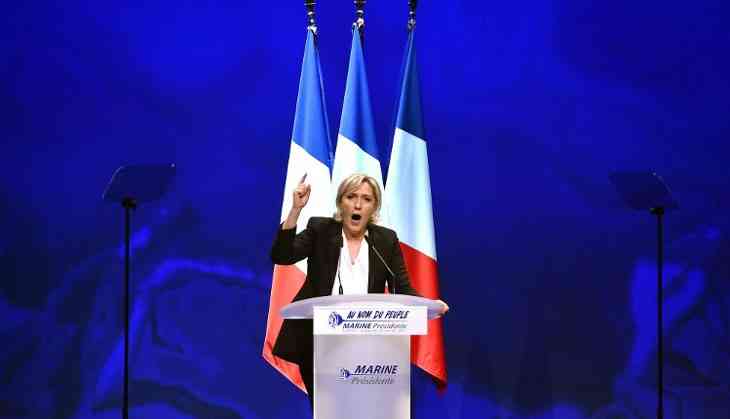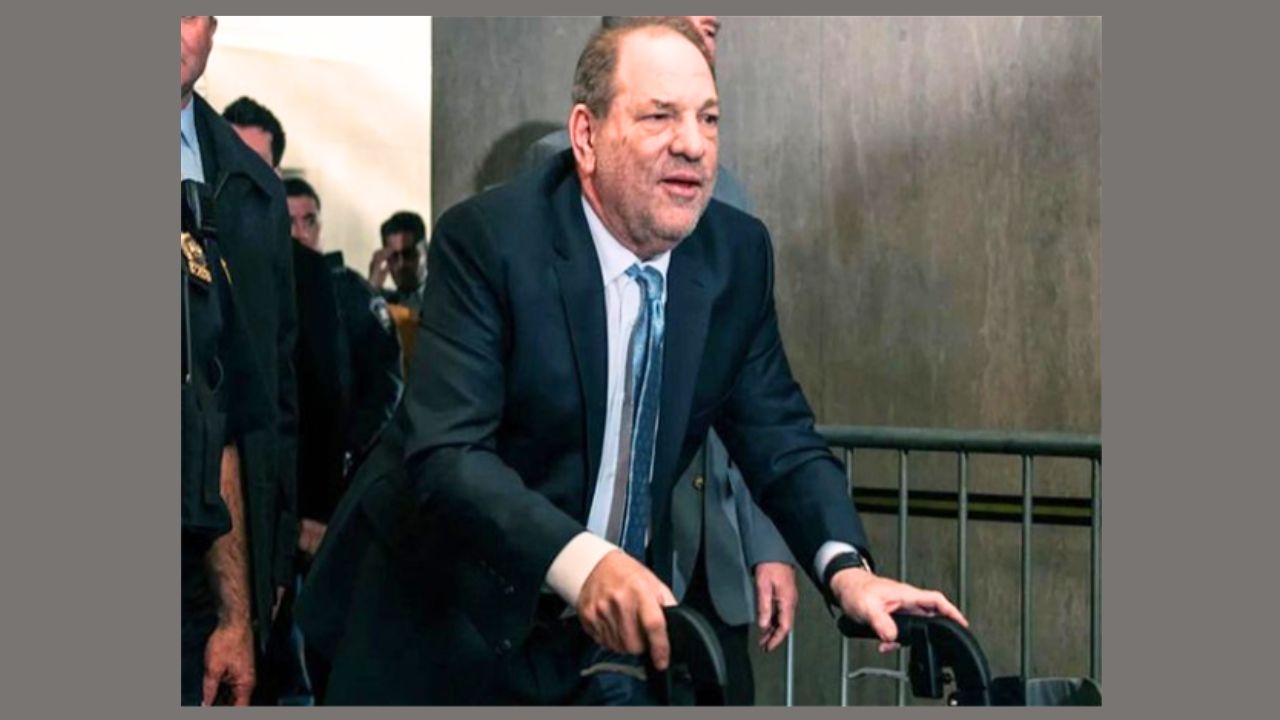Will a disillusioned France turn to far-Right Le Pen in a post Brexit-Trump world?

Right now, the imminent presidential election in France is one of the most discussed issues in Europe and outside.
The reason is obvious. Every national election in a post-Brexit Europe is being interpreted as a referendum on the European Union (EU). With a huge surge in support for the right-wing National Front led by Marine Le Pen, it will indeed be a vote on the EU in the forthcoming French presidential election.
A hardline approach
Launching the election campaign, Le Pen categorically said that France is under threat from “economic globalisation and Islamic fundamentalism”.
She intends to withdraw France from the Euro zone, hold a referendum on the French membership of the EU and put in place a strict immigration policy. This hardline political approach is generally taken as antithetical to French socio-political values.
Her opponents
Interestingly, Le Pen is leading all the major opinion polls and placed at number one position, ahead of social-liberal Emmanuel Macron and conservative François Fillon. While Macron has impressively moved up in the opinion polls to occupy the second position; Fillon, hit by illegal transfer of public money to his wife, has slipped from the first to the third position.
Given the current political state of France, Le Pen is comfortably entering into the second round of the election. It should be noted that France generally holds presidential election in two rounds – the first of which will be held on 23 April.
If no candidate will get an absolute majority in the first round, then the top two candidates will fight against each other in the second round to be held on 7 May.
Liberalism vs fear
Going by conventional wisdom, many analysts think that French people will not compromise their liberal values. By that logic, Macron should easily defeat Le Pen in the second round.
This may be a comforting conclusion, but analysts are ignoring the current sour mood of the public. Brexit and Donald Trump’s victory in the United States are a harbinger of worse things to come.
In fact, the writing on the wall is clear.
People across the developed world are frustrated with rising inequality, sluggish growth, high unemployment and stagnant wages.
With the fall of the Berlin Wall in 1989 and later the collapse of the Soviet Union itself in 1991, Francis Fukuyama declared liberal democracy as victorious in the Cold War. The history had supposedly come to an end. TINA- There Is No Alternative, became a popular drumbeat.
Private entrepreneurship was said to be the only way for creation of wealth. Washington Consensus became the gospel of truth to be adhered religiously by all countries. Mayhem caused by sudden introduction of capitalism in previously closed economies was justified as a ‘shock therapy’, and at times as Schumpeterian ‘creative destruction’.
However, faith in capitalism has caused extreme inequality. The richest 8% possess more than 80% of the global wealth, whereas, more than two-third of the people are compelled to do with a mere 3% of the total wealth of the world.
Thomas Piketty, in his celebrated book Capital in the 21st Century, has extensively discussed this rampant economic inequality in France and in other Western countries. In short, capitalism has failed to keep its promise and people are angry about economic globalisation.
Unfortunately, far-Right parties who are calling for return of nation-state have articulated this anger.
Fractured values
But what have liberals done to counter this offensive of far-Right? Liberals are not yet willing to see any fault in capitalism. They are trying to fight Right with emotive appeals for safeguarding the modern societal values like secularism, multiculturalism and political liberalism.
However, liberals themselves are responsible for the promotion of religious fundamentalism for achieving narrow political gains. Western capitalist countries, led by the US, first instigated and later supported radical Islam to counter Soviet invasion of Afghanistan during the Cold War. The West even flirted with jihadists during in the current civil war in Syria.
A broken Left
The best alternative to both liberal centrists and illiberal right-wingers is the Left. There is a strong yearning for Left politics in the West. But discredited liberal centrists create obstructions and even a lack of unity within the Left, which in turn, helps the Right.
For example, one simply needs to look at socialist Bernie Sander’s popularity in the recent US elections. Liberals within the Democratic Party just scuttled his candidature, but Sanders would have been a strong candidate to go up against Trump.
In France there is a division in the Left camp.
Benoît Hamon, former French education minister, well known for his hardline socialist policies, is a strong contender from the Left. Hamon has made appealing claims against supposed infinite growth and corporate greed. Jean-Luc Mélenchon is another candidate from the Left. He secured the fourth position in the 2012 presidential elections. He is among the top five candidates in the opinion polls.
Since there are two candidates from Left, there is no chance of anyone getting into the second round.
The final battle
Considering the current scenario as reflected by the opinion polls, it is going to be a direct contest between Le Pen and Emmanuel Macron in the second round.
This shall be an interesting contest. Most of the pundits think that all the other parties apart from those of the Le Pen and Macron will back the latter candidate in the second round. Therefore, as per simple calculations of vote percentage of different parties, Macron is going to be the new occupant of the Élysées Palace – the official residence of the president of France.
Playing the devil’s advocate
So far so good! But let’s be a devil’s advocate, and reconsider the hypothesis that people will not shift their votes on the basis of party loyalties in the second round.
Remember François Fillon’s (now at third position as per the opinion polls) views on secularism, immigration and radical Islam are not very different from those of Le Pen. There is little difference in the world-views of supporters of Fillon and Le Pen. There is a huge overlap between voters of these two candidates. They belong to the larger conservative camp.
Secondly, nothing substantially has changed in Europe in last couple of years: Greece in on the verge of another crisis. The EU’s refugee policy is in shambles. It is causing confusion and conflict. The EU, led by the liberals, enjoyed some amount of popularity until inequality and stress caused by it was not widespread.
Now with almost stagnant growth, employment and wage, capitalism and its centrist apologists are in deep crisis.
In these circumstances, it is difficult to believe that people of France will blindly follow the party diktats and vote against Le Pen in the second round. The conventional wisdom may work arithmetically.
Politically, it is just a wild guess that people will rally against Le Pen. Experts were possessed by similar wishful thinking during British vote on the EU and presidential election in America.
However, Brexit and Trump’s triumph have become history. Though it may be little early for a resounding conclusion on French presidential election, but at times, being pessimist is being a realist.
Edited by Aleesha Matharu
First published: 4 March 2017, 16:26 IST






![BJP's Kapil Mishra recreates Shankar Mahadevan’s ‘Breathless’ song to highlight Delhi pollution [WATCH] BJP's Kapil Mishra recreates Shankar Mahadevan’s ‘Breathless’ song to highlight Delhi pollution [WATCH]](http://images.catchnews.com/upload/2022/11/03/kapil-mishra_240884_300x172.png)

![Anupam Kher shares pictures of his toned body on 67th birthday [MUST SEE] Anupam Kher shares pictures of his toned body on 67th birthday [MUST SEE]](http://images.catchnews.com/upload/2022/03/07/Anupam_kher_231145_300x172.jpg)






